Department of English
Featured Speakers
.
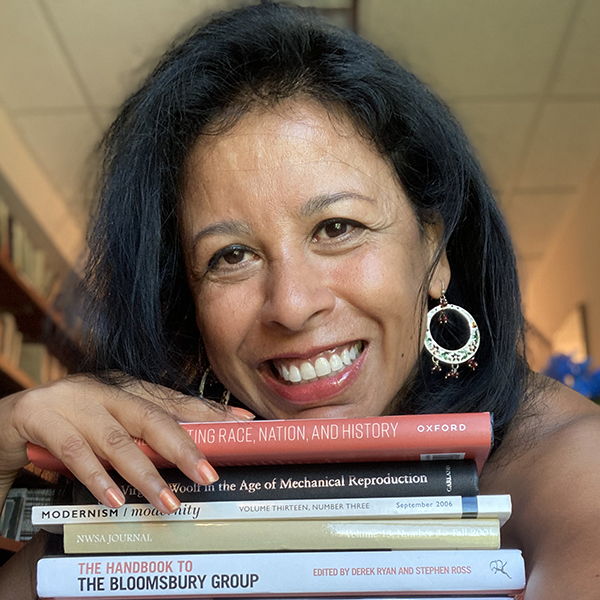
Sonita Sarker
Teks, technê, technology: Woolf as Modernist Icon
Morning, Thursday, June 6, 2024
Generally, “technology” refers to the material infrastructure of modernity, early 20th century modernity in the case of Virginia Woolf. While taking that particular formation into account, in this opening plenary, Sarker refers more specifically to “tekhnê,” the craft or skill that Woolf displays in her writing. Furthermore, “technology” derives from “teks” (as in 'textile'), the fabric woven to convey the intangible but felt experience (the traces) of being-in-empire. At the nexus of these converging and diverging implications of technology, Sarker reads the negotiations that Woolf makes as a White woman writer who is categorized as "modernist" and "feminist." In turn, Woolf becomes an icon for us today, that is, a technology of knowing AngloModernism itself.
Sonita Sarker is the author of Women Writing Race, Nation, and History: N/native (Oxford UP, 2022), the editor of Sustainable Feminisms (Elsevier, 2007) and co-editor of Trans-Status Subjects: Gender in the Globalization of South and Southeast Asia (Duke UP, 2002). Her monograph-in-progress is tentatively titled Breathing: Whiteness in Post/Modernist Literature. She has written numerous articles on modernist women writers, on transnational feminist literature of the Cold War, on post/modern and post/colonial cultural theories of mass production, knowledge-making, history, and subalternity (Benjamin, Gramsci, Foucault), and on comparative indigenous modernisms. She teaches feminist theories and literary production in the context of neo/liberal and neo/colonial histories and economies, on the basis of decolonial pedagogy. She is Professor of Women’s, Gender, and Sexuality Studies, and English at Macalester College, located on the lands of the Sisseton and Wahpeton peoples, in St. Paul, Minnesota (USA).
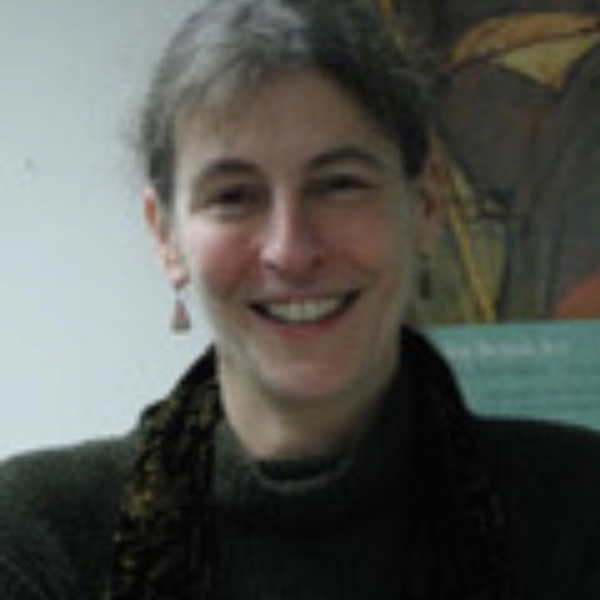
Vara Neverow
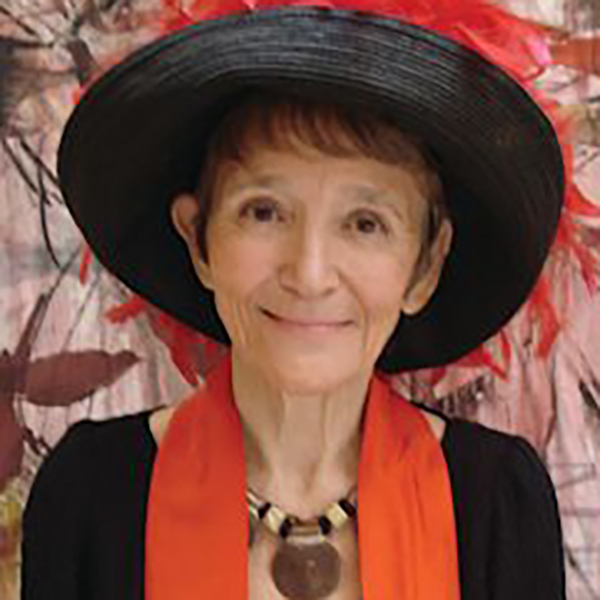
Jean Moorcroft Wilson
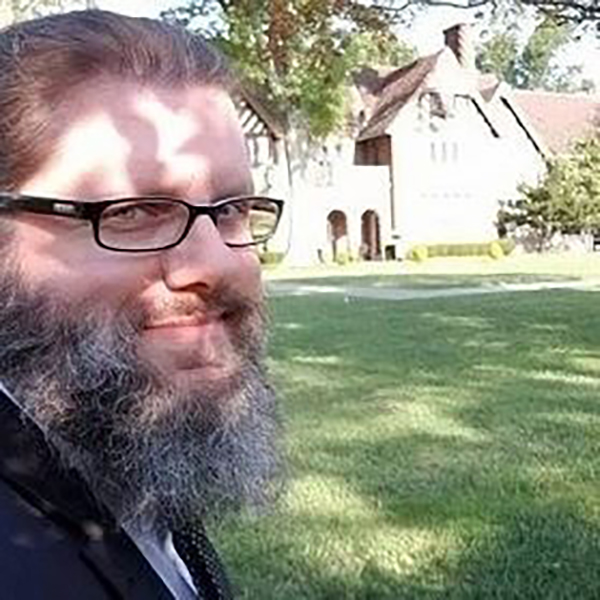
Drew Shannon
The Bloomsbury Heritage Booklets and the Legacy of the Hogarth Press Roundtable
Afternoon, Thursday, June 6, 2024
In this roundtable, Jean Moorcroft Wilson, Vara Neverow, and Drew Shannon converse upon the Bloomsbury Heritage booklets published by Cecil Woolf Publishers, which was founded by Leonard Woolf’s nephew. The booklets were first launched in the late twentieth century and continued into the late 2010s. Moorcroft Wilson identifies the origin and evolution of the Bloomsbury Heritage booklets (which paused in 2018) as the publishing history of Virginia Woolf and Leonard Woolf’s own Hogarth Press. This roundtable reveals a current plan to revive the Bloomsbury Heritage series by reprinting those booklets which have been published and expanding the project into further short monographs on Virginia Woolf and Bloomsbury. The speakers explore the ways that Cecil Woolf linked his own publishing house to that of Leonard and Virginia Woolf’s press.
Jean Moorcroft Wilson has been described as the 'doyenne of war poet biographers'. Her publications include biographies of Isaac Rosenberg (on whom she lectures worldwide), Siegfried Sassoon, Edward Thomas and Virginia Woolf. Moorcroft Wilson has spoken regularly at the International Annual Conference on Virignia Woolf starting with the second conference held in 1992, as did Cecil Woolf, who began to participate in the early 2000s. They worked together on the Bloomsbury Heritage series of monographs until Cecil's death. The series was conceived by Moorcroft Wilson in the 1990s and deals with all things Bloomsbury, including the members who gathered round Leonard and Virginia at the Hogarth Press. Inspired by the Hogarth Press Essay series, the many Bloomsbury Heritage monographs originated from papers or lectures delivered at the Woolf annual conference. Moorcroft Wilson has made her own literary contributions to Woolf studies. Believing, as a biographer, that there was no room for another full-length life of Virginia (a theory Hermione Lee has since proved wrong!), she focused on Virginia's response to place and its effect on her work in Virginia Woolf, Life and London, with an appendix on Woolf's country houses. She also has written two important Bloomsbury Heritage monographs, Virginia Woolf and Anti-Semitism and Virginia Woolf's War Trilogy: Anticipating Three Guineas and continues to publish highly respected work on the war poets.
Vara Neverow is a professor of English and Women’s and Gender Studies at Southern Connecticut State University where she has taught for 35 years. Her scholarship focuses primarily on Virginia Woolf. She organized the second Annual Conference on Virginia Woolf held in 1992 and served as President of the International Virginia Woolf Society for two terms. Neverow has been the editor of the Virginia Woolf Miscellany since 2003. She was invited by Mark Hussey to write the introduction and annotations for the 2008 Harcourt edition of Jacob’s Room. Her recent scholarly work on Woolf includes three co-edited collections of essays: Virginia Woolf: Twenty-First-Century Approaches; Virginia Woolf: Critical and Primary Sources; and The Edinburgh Companion to Virginia Woolf and Contemporary Global Literature.
Drew Shannon is an associate professor in the Department of Liberal Arts at Mount St. Joseph University in Cincinnati, OH, where he teaches primarily British literature from Shakespeare to the present. He earned a Master's and Ph.D. in English from the University of Cincinnati and a B.A. in English and Communication Arts from Xavier University. A native of Atlanta, Dr. Shannon grew up in Austin, Texas, but has lived in Cincinnati since the mid-1980s. He is currently working on a book to be titled The Deep Old Desk: A Biography of the Diary of Virginia Woolf. He has presented at dozens of literary conferences, published critical articles and essays in several books and academic journals, and a monograph from Cecil Woolf Publishers in London entitled How Should One Read a Marriage?: Private Writings, Public Readings, and Leonard and Virginia Woolf, and he recently served as the Historian/Bibliographer of the International Virginia Woolf Society as well as on the editorial board of Woolf Studies Annual.
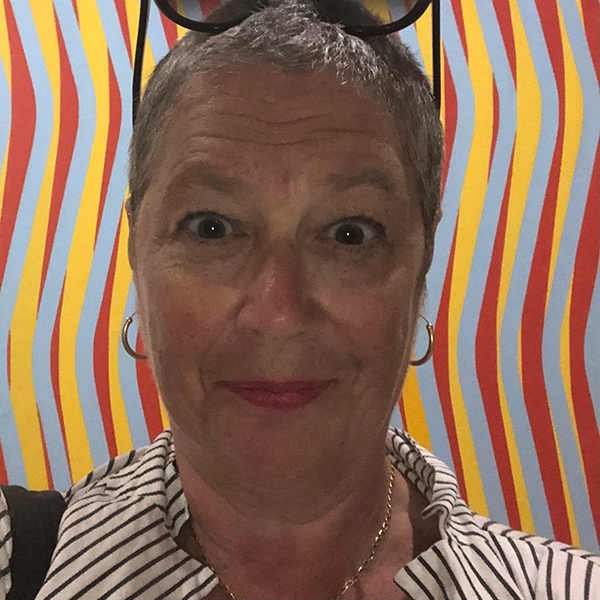
Jane Goldman
“To the Tool House”: Woolf and the Ancient Technology of Poetry
Evening, Friday, June 7, 2024
this morning
I sat in the tool house and held my pen
actually walked in the rain with energy to the
tool house
your letters, which I carry out, like a dog to its bone, to read in the tool house
I have left your
letter in the tool house
Woolf's discourse on the technologies of writing and writing as technology markedly employs the terms 'tool' and 'technique', aligning her understanding of art, poetry and poiesis with the ancient and 'modest name techne' as Martin Heidegger has it. This talk explores Woolf's poetics as technics, researching by and reporting on her philosophy and praxis via the ancient technology of poetry and modern digital technologies. It examines how Woolf's techne cuts across boundaries between poetry and philosophy, poetry and literary criticism, and speaks to a range of poetic thinkers.
Jane Goldman is Reader in English Literature and Creative Writing at the University of Glasgow, a founding General Editor of the Cambridge University Press Edition of the Works of Virginia Woolf, and a poet. She likes anything a word can do. She has published widely on Woolf, the avant-garde and modernism, and is author of The Feminist Aesthetics of Virginia Woolf: Modernism, Post-Impressionism and The Politics of the Visual (Cambridge UP, 1998); The Cambridge Introduction to Virginia Woolf (Cambridge UP, 2006); With you in the Hebrides: Virginia Woolf and Scotland (Cecil Woolf, 2013); Modernism, 1910-1945: Image to Apocalypse (Palgrave, 2004). She is co-editor of Modernism: An Anthology of Sources and Documents (Edinburgh UP & Chicago UP, 1998); Virginia Woolf Out of Bounds”: Selected Papers from the Tenth Annual International Conference on Virginia Woolf, University of Maryland Baltimore County, June 7-10, 2000 (Pace University Press, 2001); Virginia Woolf in Context (Cambridge UP, 2013); Cross-Channel Modernisms (Edinburgh UP, 2020); and the imminent Cambridge UP edition of Flush: A Biography. She is a member of 12, a collective of women poets based in Scotland, and of the Writers' Shift at the Fruitmarket Gallery, Edinburgh, and author of the pamphlet, Border Thoughts (Sufficient Place, Leamington Books, 2014) and the debut collection SEKXPHRASTIKS (Dostoyevsky Wannabe, 2021). Her translation of the Latin poet Catullus's longest poem is just out: Catullus 64 (Main Point Books, 2023).
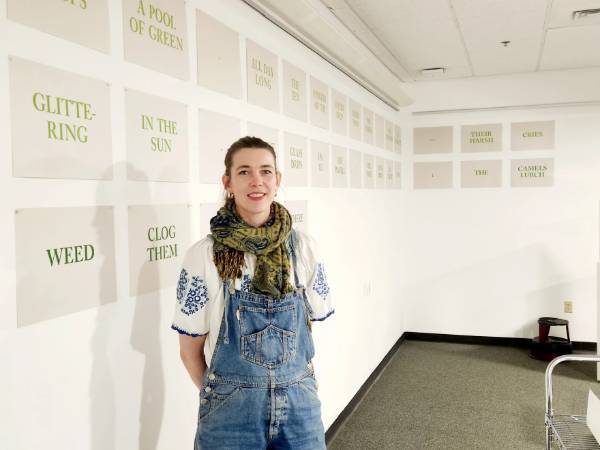
Ane Thon Knutsen
Artist's Talk on Kew Gardens: The Poetics of Technê
Evening, Friday, June 7, 2024
In this talk, Knutsen describes the process of the creation and instellation of Kew Gardens. An adaptation of the short story Kew Gardens, typeset, hand-printed and published by Virginia Woolf in 1919. The installation follows the story, word by word, color by colors through 1512 individual sheets of 18 gsm Japanese Kozo paper, typeset and printed with moveable type, taking Thon Knutsen 3 months of working in solitude in her private letterpress printshop, using the same technology as Virginia Woolf did when she first typeset and printed Kew Gardens at The Hogarth Press. In this work Thon Knutsen has taken in-spiration from the fragmented conversations of people passing by a flowerbed and Woolf's descriptions of colors and surroundings, changing the colour of the printing ink everytime a new colour is described in the story.
Dr. Ane Thon Knutsen is a Norwegian artist and designer specialized in letterpress. Knutsen works multidisciplinary at the intersection between graphic design, art, research and dissemination. Knutsen exhibits internationally, and her works take form as installations and artist books. Knutsen is associate professor in graphic design at the Oslo Academy of the Arts, where she also defended her practice based PhD on Virginia Woolf's work as a typesetter and self-publisher. Knutsen has won several awards for this work. She owns and works from her private letterpress studio in Oslo.
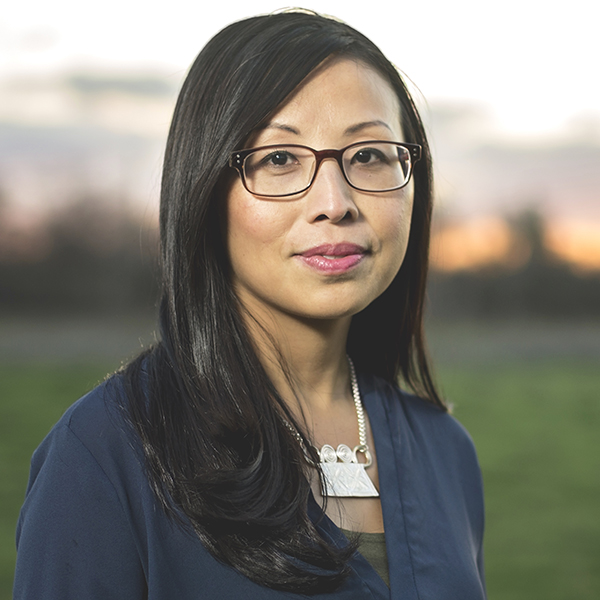
Mai Der Vang
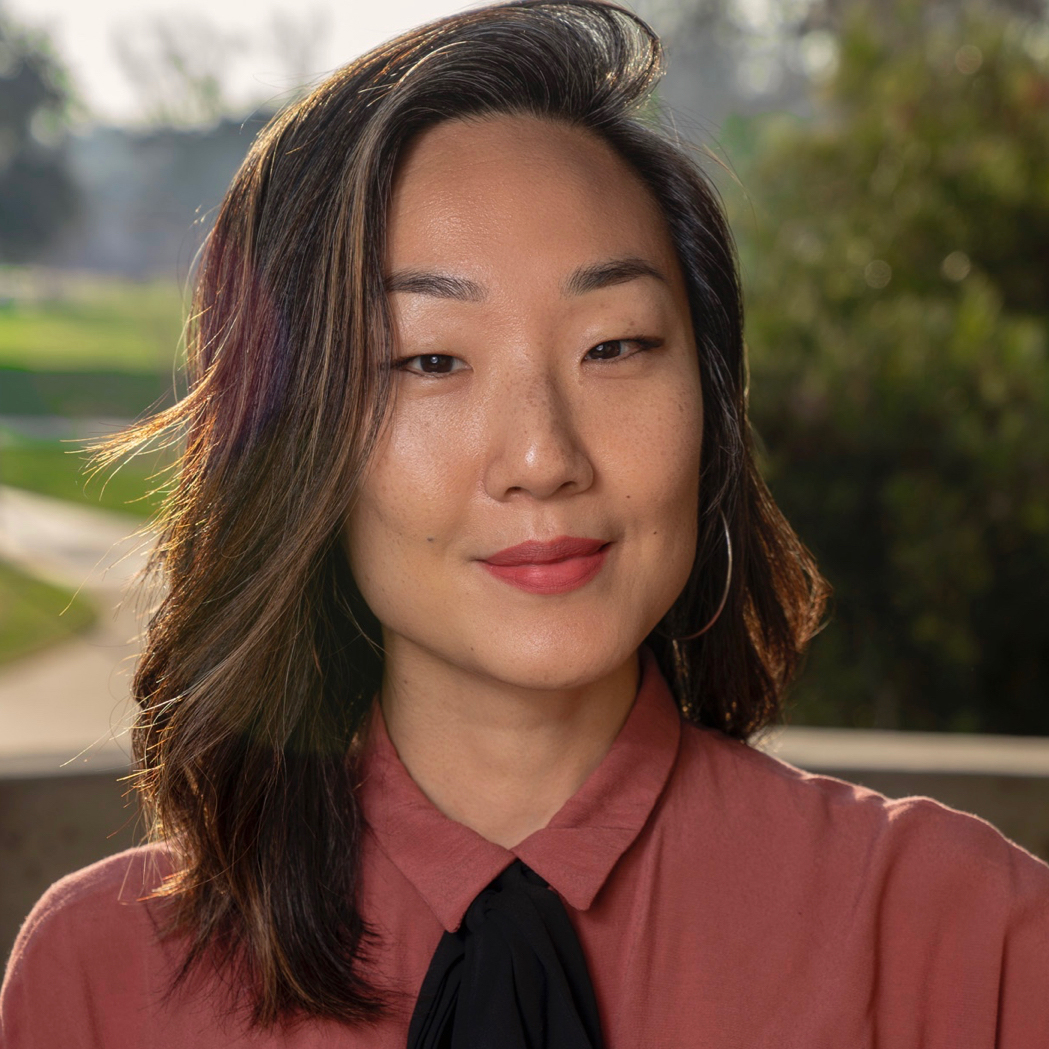
Brynn Saito
Poetry Reading
Evening, Friday, June 7, 2024
Mai Der Vang is the author of Yellow Rain (Graywolf Press, 2021), winner of the Lenore Marshall Poetry Prize from the Academy of American Poets, an American Book Award, and a finalist for the 2022 Pulitzer Prize in Poetry; along with Afterland (Graywolf Press, 2017), winner of the First Book Award from the Academy of American Poets. The recipient of a Lannan Literary Fellowship, her poetry has appeared in Tin House, American Poetry Review, and Poetry, among other journals and anthologies. She teaches at Fresno State in the MFA program in Creative Writing.
Brynn Saito’s third book of poems, Under a Future Sky, was published in August 2023 by Red Hen Press. A 2023 California Arts Council Individual Artist Fellow, Saito is the recipient of the Benjamin Saltman Award, and her poems have appeared in the New York Times and American Poetry Review. Saito lives in the traditional homelands of the Yokuts and Mono peoples (aka, Fresno, CA) where she teaches in Fresno State's English Department and coordinates the MFA program in Creative Writing. She’s co-editing with Brandon Shimoda an anthology of poetry written by descendants of the Japanese American/Nikkei incarceration, forthcoming in 2025 from Haymarket Books.
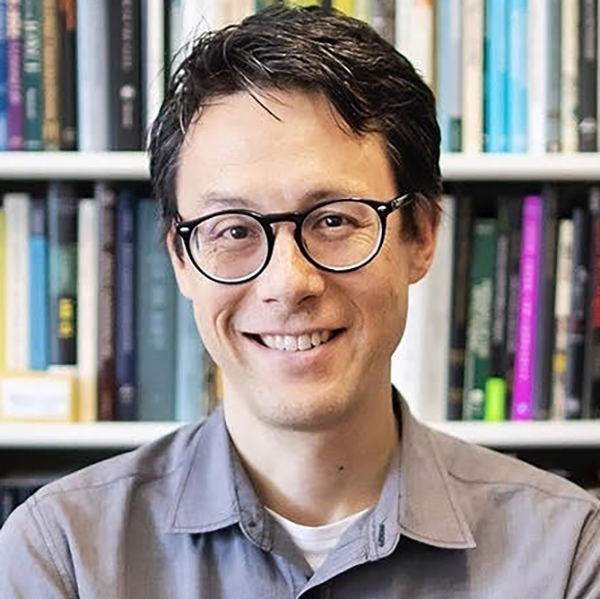
Paul K. Saint-Amour
Techniques of the Interwar Land Observer: Maltwood, Crawford, Watkins, and Woolf
Evening, Saturday, June 8, 2024
Zodiac forms embedded in the landscape, lost towns and henges revealed by RAF photos, ley lines connecting points and sites in a prehistoric network. The interwar years saw a rush of new publications, movements, and methods that aimed to read the text of the English landscape as if for the first time. Often profoundly at odds with one another, the land observation techniques of Katharine Maltwood, O. G. S. Crawford, and Alfred Watkins dazzled and inflamed their contemporaries and continue to find adherents today. This talk places Virginia Woolf among these three figures, who are not usually considered her interlocutors, yet who shared her fascination with the past’s legibility in the land and a devotion to the Ordnance Survey Map. In their strange company, a different Woolf emerges: a literary land artist with her own methods and motivations for surveying the landscape—now decrypting, now remystifying what she saw there.
Paul K. Saint-Amour works on nineteenth- and twentieth-century British literature and has special interests in the novel, law, trauma, visual culture, sound studies, and the environmental humanities. He received his B.A. from Yale and his Ph.D. from Stanford and has been a fellow of the Stanford Humanities Center, the American Council of Learned Societies, the Center for the Humanities at Cornell, the Guggenheim Foundation, the Howard Foundation, and the National Humanities Center. Saint-Amour's The Copywrights: Intellectual Property and the Literary Imagination (Cornell UP, 2003) won the MLA Prize for a First Book. His articles have appeared in journals such as Critical Inquiry, Diacritics, ELH, MLQ, Modernism/modernity, Novel, PMLA, and Representations. His most recent book, Tense Future: Modernism, Total War, Encyclopedic Form (Oxford UP, 2015), won the Modernist Studies Association Book Prize and the MLA's first annual Matei Calinescu Prize.
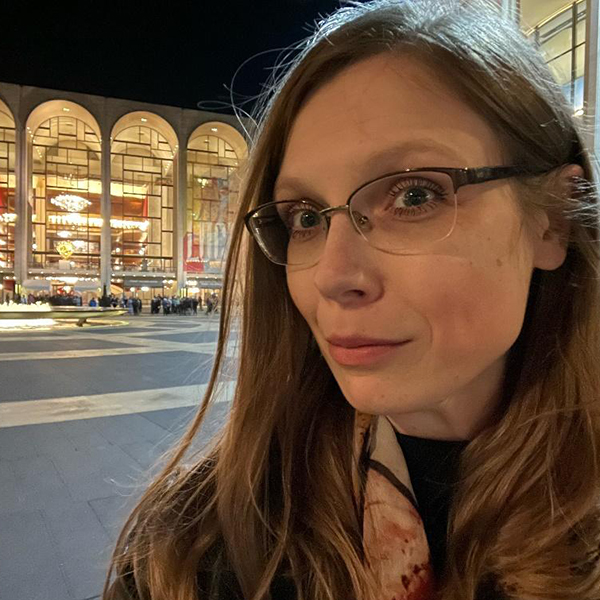
Emilia Raczkowska
The Whirlpool and the Undertow – On Reading Virginia Woolf and Karin Stephen
Afternoon, Sunday, June 9, 2024
Virginia Woolf’s essay ‘On Being Ill’ (1926) has enjoyed a revival of interest in recent years but it has rarely been looked at through a psychoanalytic lens. However, Woolf’s sister-in-law, psychoanalyst Karin Stephen, also engaged with the topic of illness, and her lectures to the medical establishment at Cambridge were published under the title ‘The Wish To Fall Ill: A Study of Psychoanalysis and Medicine’ (1933). Did Woolf and Stephen ever exchange notes on the topic? This question will become the starting point for this closing keynote address: marking the centenary of the publication of Freud's works by Hogarth Press, Raczkowska will explore the writings and biographies of the two women and their perspectives on the mind and body, violence and creativity as they interplay with the notion of ‘reality’ – central to psychoanalysis and modernity alike.
Emilia Raczkowska is Head of Education and Outreach at the Freud Museum, where she has worked for over a decade. She leads the Museum's Education and Outreach Department, which runs programmes and activities for universities, clinical and community groups from around the world. Raczkowska has extensive experience teaching psychoanalysis and psychodynamic psychology at the Museum and online; she has also been a guest lecturer at several leading universities and colleges (notably UCL, University of Oxford, University of Boston, University of Pennsylvania, Harvard University and so on). She has spoken widely at conferences and peer-sharing events, curated exhibitions and written catalogue contributions. She has edited and reviewed papers, books and dissertations which engage with psychoanalysis and regularly shares her expertise with researchers, authors and documentary producers from around the world.
.